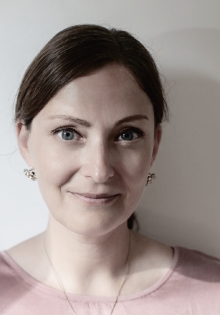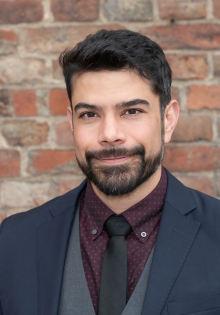Bachelor's degree in Education: Teaching degree for grammar schools and comprehensive schools
The degree programme in Pedagogy enables students to acquire the scientific and didactic foundations, knowledge and skills required for their future teaching activities in the upper secondary school and to further develop the corresponding personality traits. The programme aims to enable students to appropriately assess Education Studies and didactic content, methods and developments, to develop a research-based attitude towards pedagogical issues and to make sensible teaching decisions on this basis. The degree programme, which is divided into 11 modules, comprises 65 semester hours and one school and one extracurricular internship. Successful completion of the programme comprises an intermediate examination, an oral examination, a written examination and a third examination part, which can be either oral or written. The subject area "Pedagogy" can be studied at Paderborn University as part of the Bachelor's degree programmes Gymnasium/Gesamtschule (GyGe) and Berufskolleg (BK). The Bachelor's degree programme comprises a standard period of study of 6 semesters and includes 3 basic and 2 advanced modules. This is followed by a 4-semester Master's programme, which includes an integrated practical semester. The prerequisite for admission to the BA Teaching Qualification for Grammar School/Comprehensive School programme is a general higher education entrance qualification or a comparable qualification. The Bachelor's degree programme for the teaching subject is admission-restricted and subject to a local NC.
The subject area "Pedagogy" can be studied at Paderborn University as part of the Bachelor's degree programmes Gymnasium/Gesamtschule (GyGe) and Berufskolleg (BK). The Bachelor's degree programme comprises a standard period of study of 6 semesters. This is followed by a 4-semester Master's programme.
Information for prospective students
The "Pedagogy" (GyGe) subject area qualifies graduates of the Bachelor's and Master's degree programmes to teach at grammar schools (grades 5-12/13) and comprehensive schools (grades 5-13). In order to become a teacher at a grammar school/comprehensive school, students must first complete a three-year Bachelor's degree in Education (GyGe). This is followed by a Master's programme in the Teaching Qualification for Grammar Schools/Comprehensive Schools (GyGe).
The subject area of Education can be combined with the following subjects: Link to PLAZ
A general higher education entrance qualification or a comparable qualification is required for admission to the BA Teaching Qualification for Grammar Schools/Comprehensive Schools programme. The Bachelor's degree programme for the teaching subject is admission-restricted and subject to a local NC. An application for this subject area is therefore necessary. The Bachelor's degree programme always begins in the winter semester, while students can switch to the Master's degree programme in both the summer and winter semesters. There is an application deadline for the Bachelor's degree programme. Please refer to the relevant information from Student Services.
Study plan
The following table provides an overview of the modules of the degree programme and their exemplary classification in a study plan:
| Basic module 1: Introductory module (12LP) | ||
| 1st - 2nd semester | BM1a: Introduction to the Study of Education Studies + Tutorial BM1b: Education Studies Viewing and Thinking | Module examination in connection with BM1b |
| Basic module 2: Anthropological, social and cultural conditions of education (12LP) | ||
| 1st - 2nd semester | BM2a: Introduction: Anthropological, social and cultural conditions of education and upbringing BM2b: Education and upbringing in theory and history BM2c: Results of educational research | Module examination in connection with: BM2b or 2c |
| Basic Module 3: Working and Research Methods in Education Studies (12LP) | ||
| 2nd-3rd semester | BM3a: Introduction: Research in Education Studies BM3b: Research Methods I BM3c: Research Methods II | Module examination in conjunction with: BM3b or 3c |
| Advanced module 1: Teaching and learning in the classroom (12LP) | ||
| 3rd-4th semester | AM1a: Teaching at upper secondary level AM1b: Basic questions of subject-didactic theory formation in the teaching subject of pedagogy AM1c: Analysing pedagogy lessons | Module examination in conjunction with: AM1b or 1c |
| Advanced module 2: Fields of action and institutions (12LP) | ||
| 4th-5th semester | AM2a: Introduction to fields of action and institutions AM2b: Early childhood education AM2c: Extracurricular educational and cultural work | Module examination in connection with: AM2b or 2c |
| Advanced module 3: Interaction and communication (12LP) | ||
| 6th semester | AM3a: Introduction to Interaction and Communication AM3b: Selected Interaction and Communication Theories AM3c: Designing Educational Processes from the Perspective of Interaction and Communication | Module examination in connection with: AM3b or 3c |
Examinations
The module examinations listed in the table are taken in the teaching subject Pedagogy. The module examinations are included in the final grade for the Bachelor's examination and in the overall grade for the subject area. They are weighted according to the credit point system. A module examination is an examination in connection with a course and is related to the other courses in the module. The examinations can take the following forms:
- Presentation (approx. 45 min.) with written elaboration (approx. 12-15 p.)
- Term paper/project work (approx. 20-25 p.)
- Written exam (approx. 90-120 min.)
- Oral examination (approx. 20-30 min.)
- Oral project presentation plus colloquium (approx. 45 min. in total)
The following forms of examination must be taken at least once as part of the Bachelor's examination:
- Presentation with written elaboration
- Homework/project work
- written examination
- oral examination.


